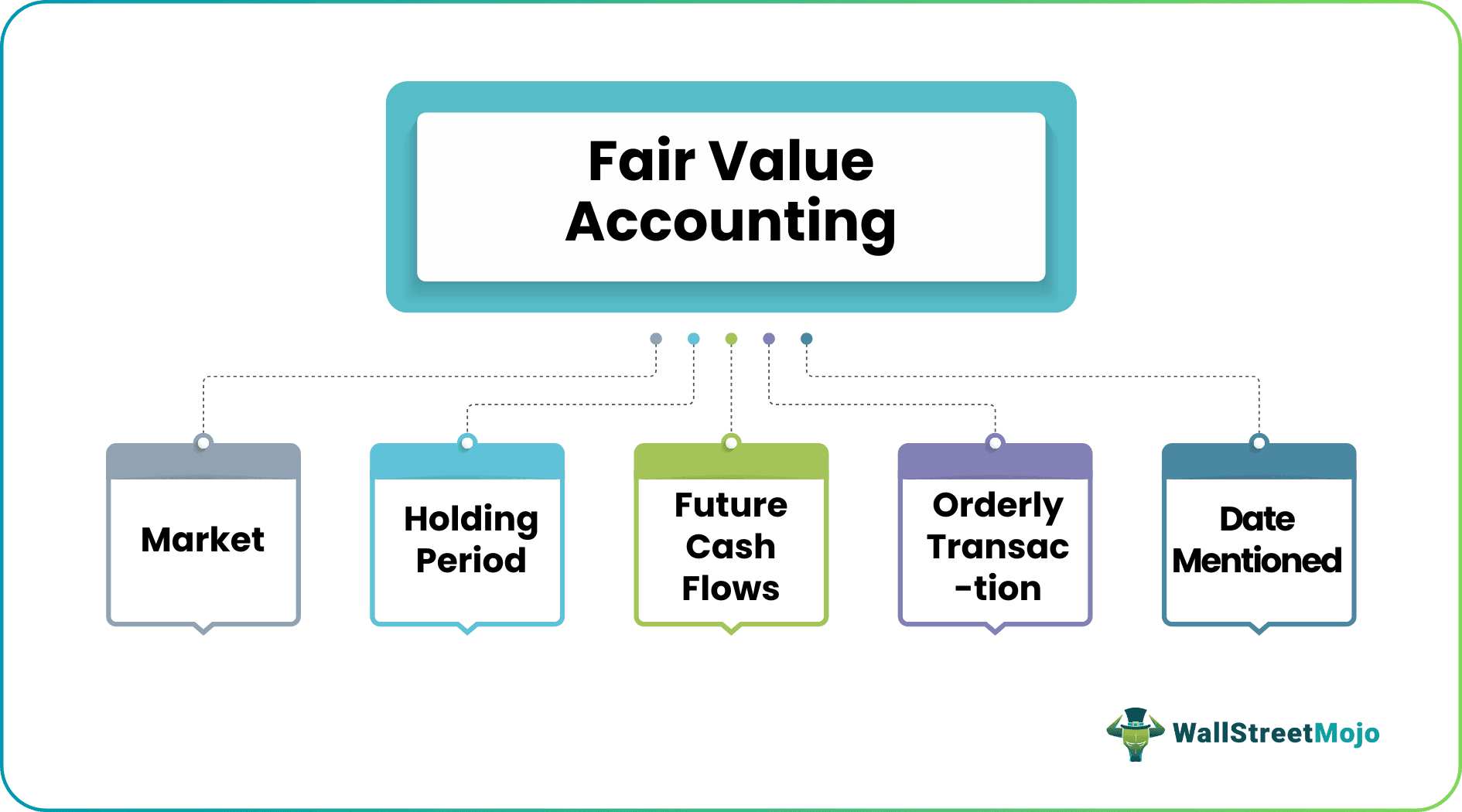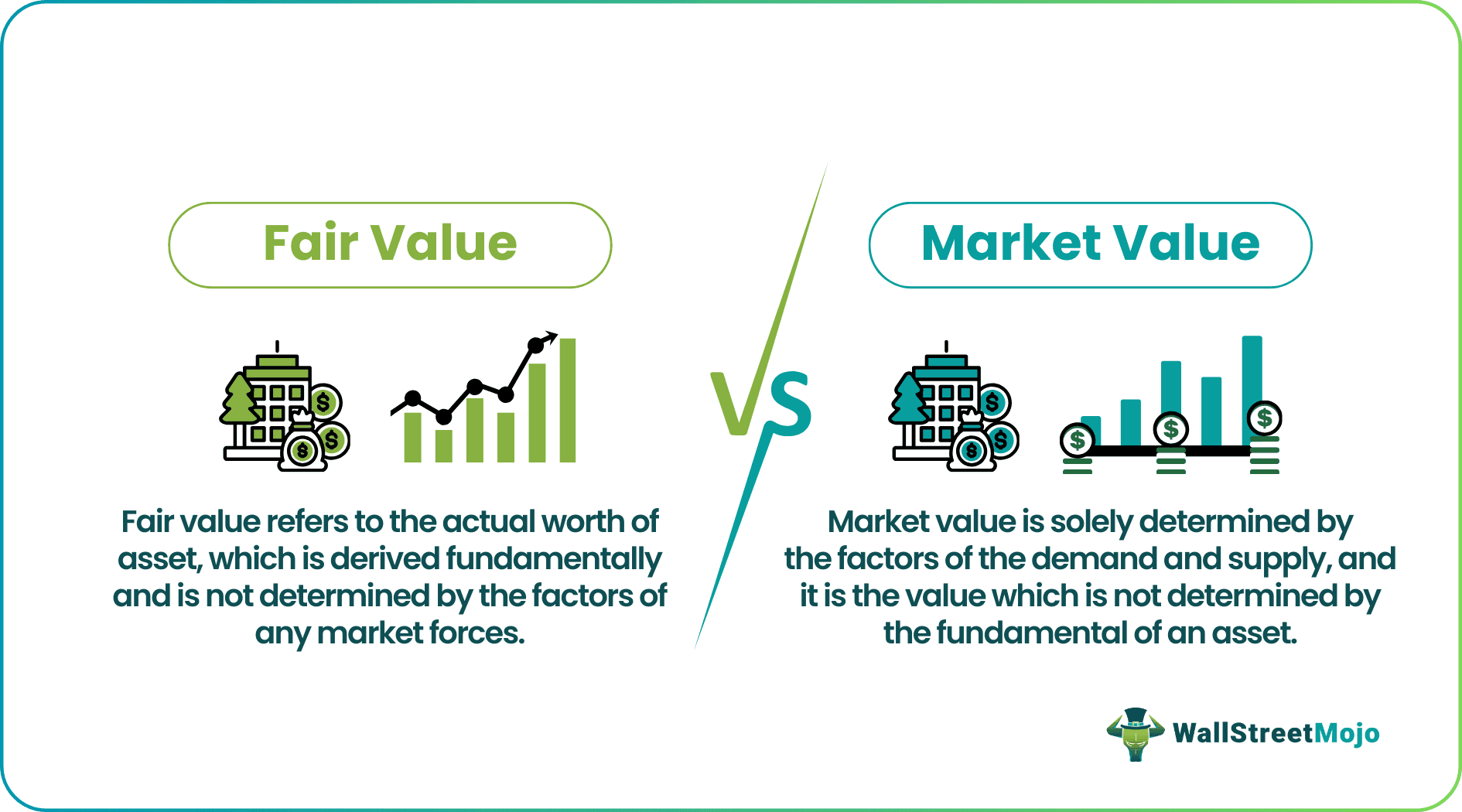Table Of Contents
Fair Value Meaning
The fair value of an investment is the asset sale price that is agreeable to both the buyer and the seller. There is a caveat; the amount should be agreeable in a free trade scenario; there should be no external pressure or conditions.

In accounting, the term refers to the projected current price—at which the company can sell its assets or close its liabilities. The fair worth of any asset or investment is evaluated based on asset demand, asset supply, utility, level of competition, etc. Moreover, the market determines the fair value of securities listed on the stock exchange.
Key Takeaways
- Fair value refers to the actual price of an asset that is agreeable to both the buyer and seller—in a free trade environment.
- This figure is projected with the help of various asset fundamentals— supply, demand, utility, risk involvement, competitiveness, expected growth rate, etc.
- Fair Value method is approved by the Generally Accepted Accounting Principles (GAAP) and International Financial Reporting Standards (IFRS).
Fair Value Explained
The fair value of an investment refers to the intrinsic worth of an asset or security. Analysts arrive upon this valuation based on factors like supply, demand for the asset, utility, expected growth rate, competition level, and associated risks.
In accounting, however, the term refers to asset value mentioned in a company's books—according to current market conditions.
It is an amount at which both buyers and sellers are willing to trade—with no conditions in place. This asset price measurement is used widely. It is popular because it considers fundamental factors.
Formula
The fair valuation of a security is derived from the futures market. The current price is valued by determining future cash flows. The fair value formula is as follows:
Fair Value Formula = Cash – Dividends
Here,
- Cash denotes the current value of the security.
- r is the prevailing interest rate charged by the broker.
- x is the number of days left in the contract (the futures contract expires in x number of days).
- Dividends refer to the amount of dividends that the investor will receive before the expiration date.
Fair Value Calculation and Example
Let us assume that XYZ stock is currently trading at $1,895.12. The broker charges 2% interest on the sale. The futures contract expires in 30 days. The investor receives 4.3 dividend points. Calculate the fair value of the stock.
Solution:
Given:
- Cash = $1,895.12
- r = 2%
- x = 30 days
- Dividends = 4.3 points
Fair Value = Cash – Dividends
= 1895.12 – 4.3 = $1,898.28
Based on the calculation, the fair value of XYZ stock is $1,898.28.
Fair Value Accounting
Fair value accounting focuses on assets and liabilities that are itemized in the company's financial statements—and determining their actual worth. It relies on market fundamentals to evaluate the fair price.
In other words, it is the value at which an asset can be sold. Alternatively, it is the cost of paying off a liability. Measurements based on an asset's present worth and future cash flows are the most accurate. Also, It is a universally accepted valuation method—recognized by Generally Accepted Accounting Principles (GAAP) and International Financial Reporting Standards (IFRS).
Fair Value Vs Market Values
The two measurements differ in the following ways:

- Fair value is the intrinsic price offered by a buyer that is acceptable to the seller (without any applicable condition). In contrast, market value is computed in relevance to market demand and supply.
- The former is a common asset valuation method. However, the latter is less popular. Market value considers only supply and demand—it ignores other factors.
- The former is derived from fundamentals. The latter is dictated by market forces.
- The former does not change frequently—even if the asset is sold at a higher or lower price. However, the latter fluctuates throughout the day—due to frequent increases or decreases in supply and demand.
- GAAP and IFRS recognize the former; the latter is not accepted universally.

